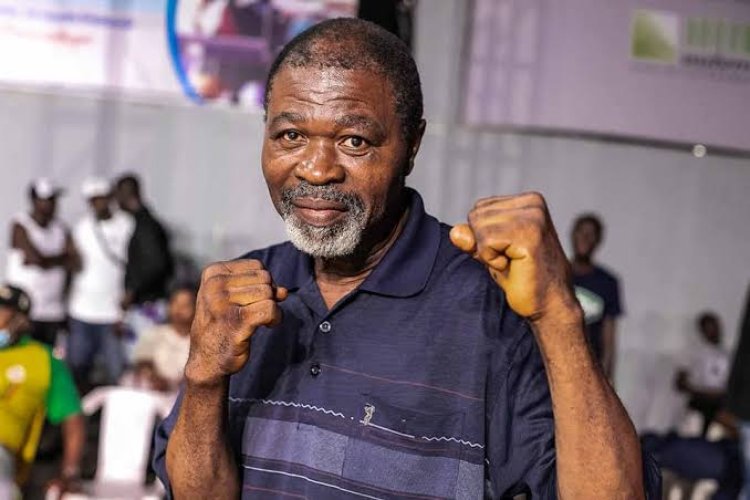Nigerian boxing legend Jerry Okorodudu is dead
The corpse of Okorodudu was initially seized due to an outstanding #600,000 payment that has since been settled by the family.

Nigerian boxing legend Jeremiah "Jerry" Okorodudu is dead after losing his fight to stay alive at a Lagos-based hospital on Wednesday. Okorodudu was aged 64.
It was gathered the erstwhile National Boxing coach who represented Nigeria at the 1984 Los Angeles Olympic Games had been battling with a partial stroke, foot ulcer and diabetes for some years.
Adenike, the deceased wife while speaking TheCable stressed how the boxer battled partial stroke and diabetes in the last two years before he finally died barely 72 hours prior to his scheduled amputation.
She said: "Jerry really suffered. For the past two years, he had partial stroke and diabetes,"
"His leg was supposed to have been amputated on Saturday but he gave up the ghost this night (Wednesday) at the hospital we took him to in Lawanson in Surulere.
Meanwhile, Adenike also told the Punch newspaper the corpse of her husband had been seized at the Private hospital due to the debt of #600,000 owed by the family.
She said: “He is dead now but we still need to pay N600,000 to get his body out of the hospital."
In his own reaction, the President, of the Nigeria Boxing Board of Control (NBBof C), Rafiu Ladipo described the news of Okorodudu’s demise as sad and painful.
According to him, there were plans 'to see' Okorodudu before the news of his demise was broken.
Though some argue he had more fights, BOXING RECORD a publication on world pugilists’ states that the late Okorodudu had 21 international Pro bouts with 135 rounds and fought between 1986 and 1992.
Aside from his feats in international bouts, Okorodudu will also be remembered for his gold medal-winning feat at the Oluyole 1979 National Sports Festival.
The former African Middleweight champion would also be remembered as the first to win the Dick Tiger Memorial Trophy in the presence of the then Chief of Army Staff, Major General Ibrahim Babangida in, Lagos, in 1986.




















